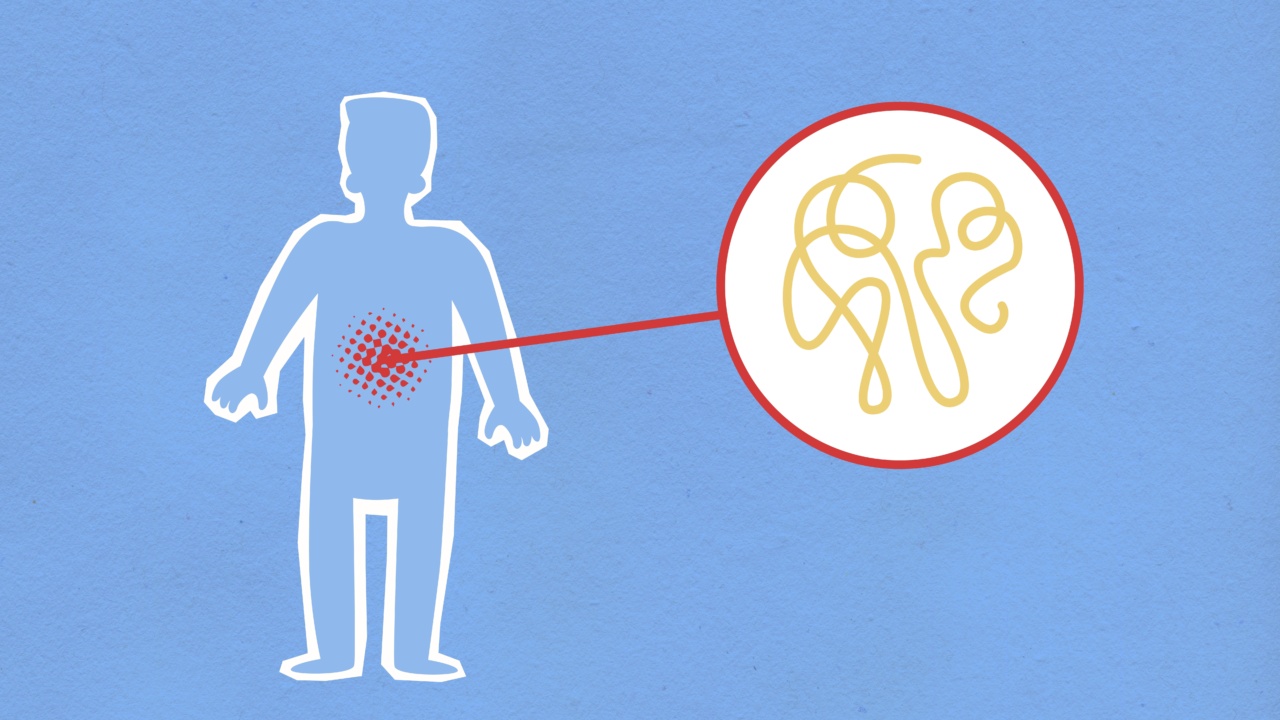Stomach worm infestation, also known as gastric worm infection, is a prevalent health issue that affects humans worldwide.
These parasitic worms, primarily residing in the gastrointestinal tract, can cause a wide range of symptoms and complications if left untreated. Early diagnosis and treatment of stomach worm infestation are crucial to prevent further complications. In this article, we will discuss the common indicators of stomach worm infestation and shed light on the importance of prompt treatment.
1. Abdominal Pain and Discomfort
One of the primary indicators of stomach worm infestation is persistent abdominal pain and discomfort. Infected individuals often experience cramping or aching sensations in the abdominal region, which may worsen during or after meals.
This pain is typically caused by the physical presence of the worms, which can irritate the lining of the stomach.
2. Nausea and Vomiting
Stomach worm infestation can trigger persistent nausea and recurring episodes of vomiting in affected individuals. These symptoms may be more pronounced after consuming certain foods or beverages.
Vomiting helps the body to expel the parasites, but it does not provide a permanent solution. Seeking appropriate medical treatment is essential to eliminate the worms fully.
3. Diarrhea and Constipation
Infected individuals may experience frequent episodes of diarrhea or constipation. Stomach worms disrupt the normal functioning of the gastrointestinal tract, leading to an imbalance in bowel movements.
Diarrhea can be watery or loose, while constipation may result in difficulty in passing stools. Persistent changes in bowel movements should be evaluated by a healthcare professional.
4. Fatigue and Weakness
Stomach worm infestation can also lead to a general sense of tiredness, fatigue, and weakness. The parasitic worms consume nutrients from the host’s body, resulting in a deficiency of essential vitamins and minerals.
This can leave individuals feeling weak and lacking energy, even after getting adequate rest.
5. Weight Loss and Malnutrition
Unexplained weight loss is another common indicator of stomach worm infestation. The presence of worms in the gastrointestinal tract can interfere with nutrient absorption, leading to malnutrition.
If left untreated, severe cases of stomach worm infestation can result in significant weight loss and nutritional deficiencies.
6. Anemia
In some cases, stomach worm infestation can lead to anemia, a condition characterized by a decrease in the number of red blood cells or a decrease in hemoglobin levels.
The parasites deplete the body’s iron stores, impairing red blood cell production and causing fatigue, pale skin, and shortness of breath. Detection and treatment of anemia are crucial in managing stomach worm infestations effectively.
7. Allergic Reactions
Some individuals may experience allergic reactions as a result of stomach worm infestation. These reactions can manifest as skin rashes, hives, itching, or swelling.
If you notice any unusual allergic symptoms, particularly in conjunction with other indicators mentioned earlier, it is important to seek medical attention promptly.
8. Visible Worms in Stool
In certain cases, stomach worms may be visible in the stool. These worms can vary in size, shape, and color, depending on the type of infestation.
While the presence of visible worms confirms the infestation, it is important to note that not all individuals may observe this symptom. Therefore, relying solely on this indicator for diagnosis is not recommended.
9. Intestinal Blockage
In rare and severe cases, stomach worm infestation can lead to an intestinal blockage. The presence of a large number of worms can obstruct the intestines, causing severe abdominal pain, bloating, and vomiting.
Intestinal blockage is a medical emergency, and immediate medical attention is essential to prevent complications.
10. Anal Itching
Stomach worm infestation can also cause anal itching or discomfort. The eggs or larvae of certain types of stomach worms can migrate to the anal region and cause irritation.
Persistent itching should not be ignored, as it may indicate the presence of parasitic worms.
Diagnosing stomach worm infestation relies on a combination of clinical evaluation, medical history, and laboratory tests.
If you suspect you may have stomach worms or are experiencing any of the above indicators, consult a healthcare professional for an accurate diagnosis and appropriate treatment.
It is important to note that prevention is key in avoiding stomach worm infestation.
Practicing good personal hygiene, including regular handwashing, avoiding consumption of contaminated food and water, and maintaining a clean living environment, can significantly reduce the risk of infestation.
In conclusion, stomach worm infestation can lead to various symptoms and complications.
Recognizing the common indicators, such as abdominal pain, nausea, diarrhea, fatigue, weight loss, anemia, allergic reactions, visible worms in stool, intestinal blockage, and anal itching, is crucial for prompt diagnosis and treatment. Seeking medical attention and following preventive measures are essential in managing and preventing stomach worm infestations.































